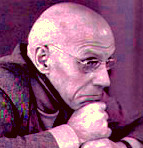I can’t believe it, but I actually found a good Atlantic article. Enjoy a deep dive into the diseased neuroses of white South African liberals, with implications for understanding other Apartheid and post-Apartheid states. Personally I was thinking a lot about Israel and the way white people in the US are a million times more weird and freaked out about race than PoC. I’ll post some tidbits below for your delectation:
But as time wore on, even wealthy white South Africans began to radiate a degree of fear and frustration that did not match any simple economic analysis of their situation. A startling number of formerly anti-apartheid white people began to voice bitter criticisms of post-apartheid society. An Afrikaner poet who did prison time under apartheid for aiding the Black-liberation cause wrote an essay denouncing the new Black-led country as “a sewer of betrayed expectations and thievery, fear and unbridled greed.”
What accounted for this disillusionment? Many white South Africans told me that Black forgiveness felt like a slap on the face. By not acting toward you as you acted toward us, we’re showing you up, white South Africans seemed to hear. You’ll owe us a debt of gratitude forever.
White people rarely articulated these feelings publicly. But in private, with friends and acquaintances, I encountered them over and over. One white friend and former anti-apartheid activist (who didn’t want to be identified in order to talk freely) told me that after the Truth and Reconciliation Commission publicized much of what Black South Africans had faced under apartheid, she felt humiliated to recall what she and her friends had once considered resistance: gestures like having a warm exchange with a Black maid or skipping class to join an anti-apartheid march.
She said that sense of embarrassment made her shy away from politics, as did the slow-dawning recognition that Black people—many of whom had worked in white people’s houses under apartheid—knew much more about the lives of white people than white people knew about Black lives. My friend had never even seen the inside of a Black person’s home.
Carjacking is an easier crime to fake for insurance fraud, and therefore might be overreported. But the disparity was so stark that it suggested another explanation: A number of white South Africans had a memory of someone breaking into their homes when it never happened.
The journalist Mark Gevisser has called this fear of home invasion by Black burglars “Mau Mau anxiety,” after the guerrilla movement that helped drive white colonists out of Kenya in the 1950s. He wrote that this fear lurks even “in a bleeding-heart liberal like myself.”
Giliomee, the historian, told me he thought that what dogged white progressives after apartheid ended was less a concern for physical safety than a feeling of irrelevance. Under apartheid, many of them felt they belonged to a vanguard. One of Giliomee’s friends, a liberal white politician, left a secret 1987 meeting about a transition to Black-majority rule believing that he and the prominent ANC leader Thabo Mbeki were “best friends.” He expected the aftermath of apartheid to be an exciting time, full of the same thrilling work he had done to help build a democratic, multiracial future for the country. Once Black leaders secured political power, though, they didn’t have to rely as much on white allies. When Mbeki became Mandela’s deputy president, he wouldn’t return the white liberal’s calls. The politician sent policy proposals and got no reply. After apartheid, the friend “started drinking heavily,” Giliomee said. “He drank himself to death.”
Buys found unexpected refuge in the ideas of the sociologist Manuel Castells, who argued that progressives had a duty of care for “Fourth World” groups that lack the protection of their own state. Castells used the term to refer to marginalized peoples such as the Australian Aborigines. “But what if Afrikaners are such a community?” Buys recalled thinking, in a moment of revelation. “I wanted to fight for Afrikaners, but I came to think of myself as a ‘liberal internationalist,’ not a white racist,” Buys told me. “I found such inspiration from the struggles of the Catalonians and the Basques. Even Tibet.”

